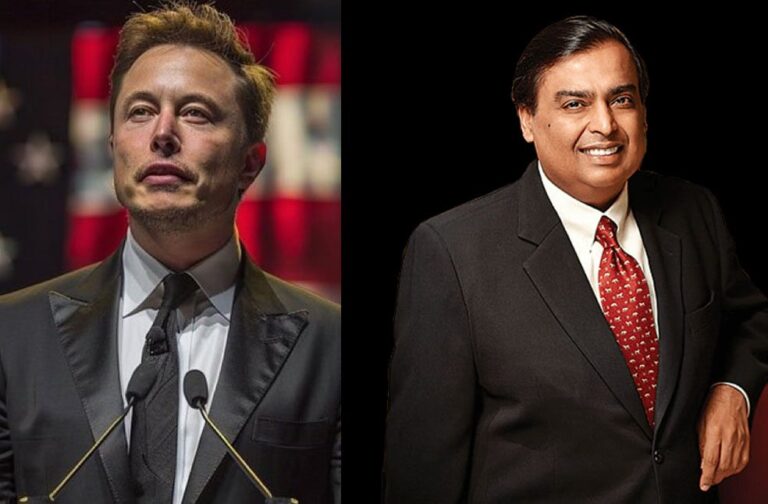New Delhi: The competition between two of the world’s wealthiest individuals, Elon Musk and Mukesh Ambani, is intensifying as they gear up to compete in India’s satellite broadband market.
The stakes rose further after the Indian government announced last week that satellite spectrum for broadband services would be allocated administratively rather than through auctions. Musk had previously criticized the auction model, which was backed by Ambani.
Satellite broadband, which delivers internet access within the satellite’s coverage area, is particularly valuable for remote or rural regions where traditional services like DSL (which relies on telephone lines) or cable are unavailable. This technology plays a crucial role in closing the digital divide in hard-to-reach areas.
While India’s telecom regulator has yet to set the pricing for satellite spectrum and commercial services are not yet available, industry forecasts by credit rating agency ICRA suggest that satellite internet subscribers in India could reach two million by 2025.
The market is competitive, with around six major players, led by Ambani’s Reliance Jio. After spending billions in airwave auctions to dominate India’s telecom sector, Jio has now teamed up with SES Astra, a prominent satellite operator from Luxembourg.
The battle between Elon Musk and Mukesh Ambani in India’s satellite broadband market is a clash of two billionaires with significant ambitions in space and telecommunications.
Starlink
Starlink, Musk’s satellite broadband venture through SpaceX, aims to provide high-speed internet across remote and underserved areas globally, including India.
Starlink uses a constellation of low-Earth orbit (LEO) satellites, promising faster internet speeds and lower latency compared to traditional broadband services.
Mr Musk’s Starlink has 6,419 satellites in orbit and four million subscribers across 100 countries. He has been aiming to launch services in India since 2021, tapping into the country’s vast population and rural regions that are currently under-connected.
Jio Satellite
Mukesh Ambani’s Reliance Jio has announced plans to enter the satellite internet space in partnership with Luxembourg-based SES.
The Jio Satellite Communications aims to offer affordable satellite-based broadband to Indian consumers, including in remote and rural areas.
Jio’s extensive telecom infrastructure, brand recognition, and customer base in India give Ambani a strong foothold, as the company is already the market leader in mobile networks and fibre broadband.

Competition & Strategy
Starlink already has regulatory approvals in place for its India operations but faced hurdles due to licensing issues and government scrutiny over foreign satellite services.
Jio is leveraging its local dominance and regulatory ease to develop partnerships and provide competitive pricing.
Both companies are racing to offer affordable satellite internet to a largely untapped market in India, which has over 700 million internet users but still many underserved regions.
Key Challenges
Regulatory hurdles: The Indian government has strict regulations for foreign companies operating in the country’s satellite and telecom sector, which could affect Starlink’s operations.
Cost and accessibility: Both companies need to keep prices competitive to win over the vast majority of users in a cost-sensitive market like India.
Technology and infrastructure: The success of satellite broadband in India depends on overcoming technological challenges, like ensuring a seamless connection in remote areas and scaling up infrastructure.
The rivalry represents a broader trend where tech giants are looking to dominate the space-based internet sector, with India being a critical battleground due to its population and growing demand for internet connectivity.



